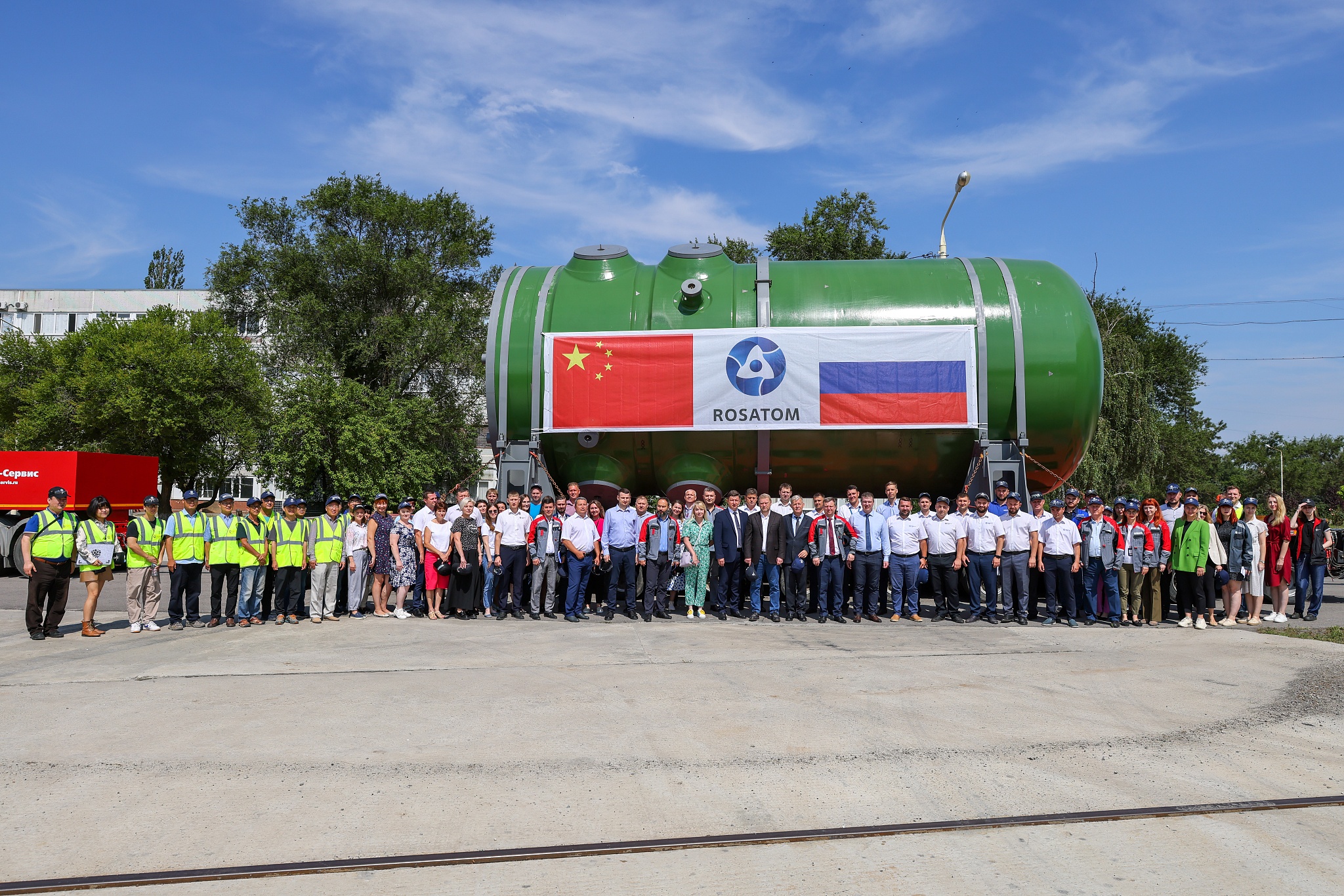China, Russia Intensify High-quality Energy Cooperation

A ceremony to ship a nuclear reactor pressure vessel and steam generators for the Xudapu Nuclear Power Plant's power unit No 3 at the Atommash plant. (PHOTO: VCG)
By?TANG?ZHEXIAOChina and Russia will continue to consolidate their energy strategic cooperation and achieve high-level development, making efforts to ensure the stability and sustainability of the global energy market, according to a China-Russia joint statement signed during Russian President Vladimir Putin's visit to China on May 16-17.
As major energy producers and consumers in the world, energy cooperation is a cornerstone of practical cooperation between China and Russia. The two countries have strengthened cooperation and championed major projects including renewable energy, which also safeguards global energy security and the stability of supply chains.
"One of the key areas of this [Russia- China] relationship is energy cooperation, which is becoming increasingly active," said Russian President Vladimir Putin in a statement addressing a Russian-Chinese energy forum held in Beijing last year, The Moscow Times reported.
Energy trade between China and Russia has been expanding. In 2023, Russia exported 22.7 billion cubic meters of natural gas to China through the Power of Siberia (also known as China-Russia east-route natural gas pipeline), an increase of 50 percent over the previous year, with revenue increased by more than 60 percent to 6.4 billion USD, Russia's Nezavisimaya Gazeta reported.
Russia is willing to work with China to deepen energy cooperation in all aspects, strengthen multilateral coordination, and jointly safeguard the global energy market and stability of supply chains, Russian deputy prime minister Alexander Novak said during the 20th meeting of the China-Russia Energy Cooperation Committee.
Gazprom, Russia's state-owned multinational energy corporation, has become China's largest pipeline gas supplier in February 2024, overtaking previous leader Turkmenistan for the first time.
The two countries have also made positive progress in the field of hydrogen energy in recent years.
Meanwhile, construction of cross-border energy channels is on track. The Arctic LNG 2 project is a landmark case of China-Russia energy cooperation. The final prefabricated module for the second production line of the Arctic LNG 2 project left China bound for Russia's Murmansk this January, and the project is moving forward steadily as part of the construction of the Polar Silk Road.
Russia's State Atomic Energy Corporation Rosatom said in a statement that its subsidiary Rusatom Overseas signed a memorandum of understanding with China Energy Engineering Group for the construction of a pilot project for a hydrogen plant on Russia's Sakhalin Island.
The plant, which is to launch in 2029, could have a capacity of up to 36,500 tons per year of "blue" hydrogen (decarbonized hydrogen), said Rusatom overseas vice president Anton Moskvin.
Looking forward, the two sides will cooperate in oil, natural gas, liquefied natural gas, coal, electricity and other fields in accordance with market principles to ensure the stable operation of relevant cross-border infrastructure and unimpeded energy transportation, said the joint statement, adding that deepening cooperation in promising areas such as renewable energy, hydrogen energy and carbon markets will be promoted.






